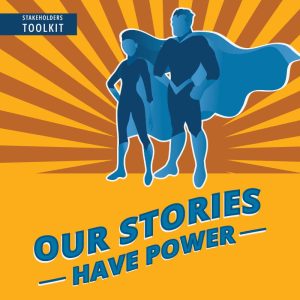Recovery Capital Stories
Recovery is not a one-size-fits-all journey. It is deeply personal and shaped by an individual’s unique circumstances, strengths, and the resources available to them. Stories of recovery capital bring these journeys to life, demonstrating how people navigate challenges and leverage various forms of capital to rebuild their lives.
Sharing these stories serves multiple purposes. They provide inspiration and hope to others on similar paths, showing that recovery is possible and achievable. They also help illuminate the practical ways individuals utilize personal, human, social, community, and cultural recovery capital, offering valuable insights into what works in real-life contexts.
Examples of individuals’ stories are provided below, illustrating the transformative impact of recovery capital across its various dimensions. Each story underscores the resilience of the human spirit and the critical role of supportive resources in the recovery journey.
Physical Recovery Capital
“One of the biggest challenges was paying for treatment. I had lost my job, and my wife was our only source of income. We ended up cashing out our retirement savings to afford the deposit for my treatment program. It was a difficult decision, but ultimately, it was the right one. The first night I spent in treatment, I cried myself to sleep—not because I was sad, but because I was finally getting the help I so desperately needed.”
Donnie J.
Human Recovery Capital
“My addiction may be a chapter in my story, but it does not define the entirety of who I am. It is a piece of my past, one that has shaped me, challenged me, and ultimately strengthened me, but it is far from the whole picture. I am so much more than my struggles—I am the resilience that carried me through them, the determination that pushed me to seek recovery, and the courage that keeps me moving forward each day. My journey is one of growth, self-discovery, and transformation. I’ve learned that while the shadows of addiction may linger, they do not dim the light of the person I’ve become. Today, I stand tall, embracing my full story with pride, knowing that my past does not define my future.”
Wendy J.
Social Recovery Capital
“With the support of the AA program and my recovery community, I slowly began to rebuild my life. I learned to confront my demons, to forgive myself, and to love myself unconditionally. I discovered a strength within me that I never knew existed, a resilience that could overcome even the darkest of times.
Lauryn C.
Today, I’m a peer recovery support specialist, using my experiences to help others. I’m pursuing a bachelor’s degree in social work and American Sign Language, with a goal to become an addictions counselor and advocate. My support system – friends, family, and my recovery community – has been instrumental in my journey.”
Community Recovery Capital
“I celebrated 10 years in recovery this year. When I was struggling I never knew of a person in recovery. I didn’t see it represented in my community or even in media. Now, I understand that representation is hope! I choose representation over stigma. I am married with two beautiful daughters. I own a home, and I am an honors student. I have worked in the helping field for 8 years becoming a Recovery Community Coordinator at FAN, a local organization that serves individuals and families affected by substance use disorder. My days are filled with community events, family, friends, coworkers, and laughter beyond measure.”
Amy B.
Cultural Recovery Capital
“I understood I would face many setbacks and temptations along the way. Despite this knowledge, I was determined to stay committed to my recovery and push through the challenges that came my way.
Wendy J.
I didn’t want to go down the traditional route of seeking help through rehab. Instead, I turned to my faith and sought guidance from God. I found comfort in the Main Street church of Christ, where the community welcomed me with open arms. Through prayer and the support of my church family, I was able to start breaking free from my addiction and find a new sense of purpose in life.”

Across the country, people in recovery are celebrating their successes and sharing them with others. However, these successes often go unnoticed by the broader population. Sharing and celebrating recovery stories connects community members with one another and empowers those who are still struggling to know they are not alone. It also helps us to eliminate the stigma and discrimination people in recovery often face and educate the public that recovery is possible.
